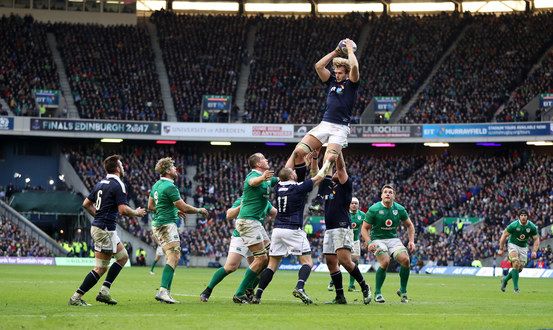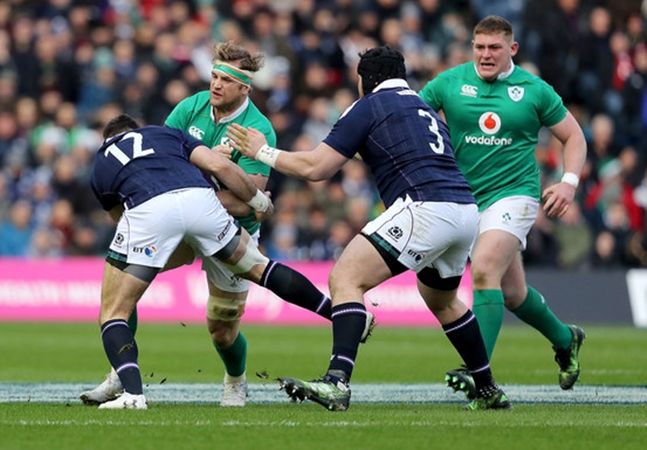

Share
5th February 2017
01:22pm GMT

 It's safe to say that Ireland will have plenty of work to do in Carton House this week to remedy some of the problems which hindered them so badly, ahead of their trip to Rome next weekend.
After the first couple of minutes of the match in Murrayfield, it was evident to everyone in the stadium and those who were watching at home, what way Ireland were hoping to gain victory and this was through brute force.
It's safe to say that Ireland will have plenty of work to do in Carton House this week to remedy some of the problems which hindered them so badly, ahead of their trip to Rome next weekend.
After the first couple of minutes of the match in Murrayfield, it was evident to everyone in the stadium and those who were watching at home, what way Ireland were hoping to gain victory and this was through brute force.
 Of course, this plan makes sense, when you have ball carriers in your team in the likes of Sean O'Brien, Iain Henderson, CJ Stander, Robbie Henshaw, Jamie Heaslip and Tadhg Furlong, you would be foolish not to utlilise them in this manner.
However, the issue in Murrayfield was the inability of a Plan B. Vern Cotter clearly had his players prepared for this type of onslaught and they dealt with it excellently.
Shane Horgan, writing in his column for The Times, states that it was the absence of Jonathan Sexton which led to Joe Schmidt focusing on this one dimensional game plan.
Of course, this plan makes sense, when you have ball carriers in your team in the likes of Sean O'Brien, Iain Henderson, CJ Stander, Robbie Henshaw, Jamie Heaslip and Tadhg Furlong, you would be foolish not to utlilise them in this manner.
However, the issue in Murrayfield was the inability of a Plan B. Vern Cotter clearly had his players prepared for this type of onslaught and they dealt with it excellently.
Shane Horgan, writing in his column for The Times, states that it was the absence of Jonathan Sexton which led to Joe Schmidt focusing on this one dimensional game plan.
'What he (Schmidt) concluded was: we don’t have Johnny Sexton so our game needs to be a little bit narrower. In our back row we have three of the biggest ball-carriers in Europe as well as Iain Henderson and Tadhg Furlong, two other massive ball-carriers. With all that power we are going to steamroll these guys. Fundamentally, that was Ireland’s approach.'Unfortunately for Ireland, this approach did not become effective until the second half when Ireland were chasing the game and Scottish bodies began to tire. By that stage, the damage had been done and Ireland's eight point return from the first half through ineffective attacking play proved costly in the end.
Explore more on these topics: